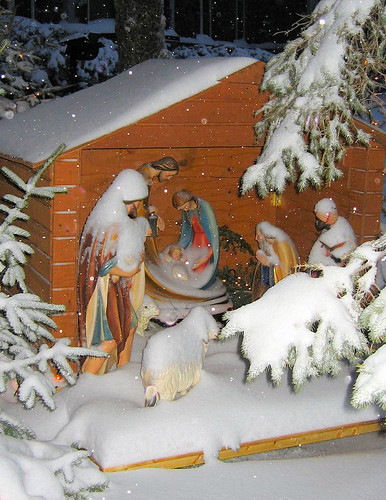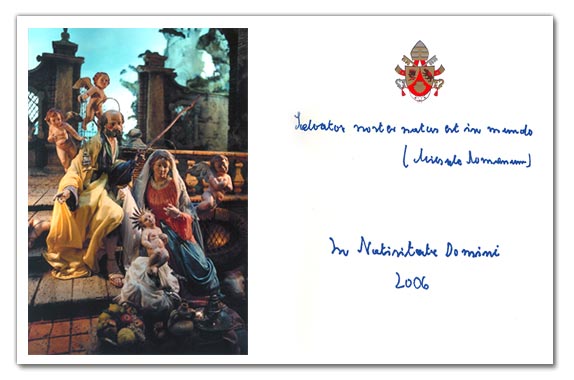
[Originally published on 3/7/07]
According to the press release of May 21, 2004:
The Getty has acquired The Adoration of the Magi with Saint Anthony Abbot (about 1390–1410), a rare and masterful example of the International Gothic style that dominated taste across Europe around 1400. The work is one of very few northern European panel paintings of this period in any American museum.
This elegant piece was probably commissioned for a church institution honoring St. Anthony.
Densely covered with a silver (originally gold) floral motif, The Adoration of the Magi's vibrant red background serves as a magnificent foil for the animated procession of figures. At the center, enthroned in his mother's lap, the new King stands to receive the offerings of the Magi. Caspar, kneeling bareheaded in reverence, offers his gift of gold, with Balthasar and Melchior standing behind him. The three wise men are all resplendently dressed. Their clothing mirrors contemporary court sensibility while alluding to their far-flung kingdoms, suggested in part by the white "turban" worn by Melchior. At the far left stands Saint Anthony Abbot, identified by the T-shaped staff, a bell with which he repelled Satan, and a pig traditionally associated with his treatment of skin conditions.
The eyes of the characters are so striking for their liveliness. They have an aspect of seeking and reverence. And the Child seems almost surprised to see these subjects. The Virgin gazes directly on her Son. The starry background is prominent with its regal warmth. The site also offers pre-restoration pictures which show how much work it took to bring out the beauty of this extraordinary painting.












